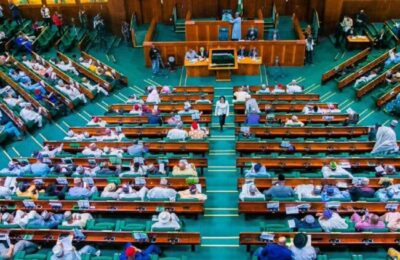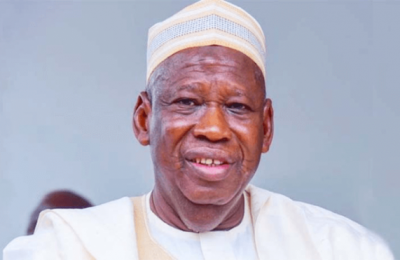IN the budget recently presented to the National Assembly christened “Budget of Restoration: Securing Peace, Rebuilding Prosperity”, President Bola Tinubu disclosed that the budget is at the very core of his Renewed Hope Agenda and demonstrates the administration’s commitment at stabilising the economy, improving lives, and repositioning the country for greater performance. The president further revealed that “Increasing agricultural production is central to our food security agenda, but insecurity has crippled this vital sector. We are supporting our farmers with funding and inputs to reignite productivity. Food security is non-negotiable. In this regard, we are taking bold steps to ensure that every Nigerian can feed conveniently, and none of our citizens will have to go to bed hungry”. The United Nations World Food Programme (WFP) had predicted that 33 million people could face severe food crisis in the country in 2025. This is a sharp increase from the 25 million people who are currently food insecure, which not only poses a serious food risk to a country but is a pointer to the serious hunger starring us in the face. The Federal Government allocated a about two per cent to the agriculture sector in the 2025 budget meaning that from the N49.7trillion budget presented by the President, agriculture was allocated the sum of N826.5billion or 1.7 per cent of the budget. Therefore, agriculture is coming behind defence and security, which gets N4.91trillion allocation, infrastructure which receives N4.06trillion, while health and education are to get N2.48trillion and N3.52trillion, respectively. The implication of this is that the ₦826.5 billion allocation to agriculture is more than 100 per cent increase from N362.94 billion in 2024, and N228.4 billion in 2023. The Director-General, Budget Office of the Federation, Tanimu Yakubu, hinted that the increment is to ensure food sufficiency and reduce reliance on imports, agricultural mechanisation, irrigation projects, and value-chain development.
This move will not only boost food production but also support economic diversification and rural development, as the government seeks to further promote collaborations with the private sector to enhance mechanisation across crop, livestock, and aquaculture sectors, Yakubu said. Additionally, there are plans to drive capital-intensive agribusiness programmes capable of attracting foreign direct investment (FDI) for the key component of the planned agriculture revamp, the Renewed Hope Fertilizer Support Programme (RH-FSP), designed to enhance fertilizer production and distribution in the country, improve crop yields and farmer incomes, and lower worrisome food-induced inflation. This package includes a ₦127.27billion intervention fund to be deployed for the importation of raw materials, improved logistics, and support for local blending plants. There is also the revolving concessionary financing, and loan scheme to promote long-term sustainability in fertilizer production. The National Agricultural Development Fund (NADF) has replaced the discontinued Central Bank of Nigeria’s Real Sector Support Facility (CBN-RSSF), and is offering single-digit interest loans that will support local fertilizer production through low-cost financing. In a similar vein, the Federal Ministry of Agriculture and Food Security has proposed spending N180bn on federal universities of agriculture and research institutes in the 2025 proposed budget.
The allocations were disclosed in the newly-released 2025 Appropriation Bill by the Budget Office of the Federation while the proposed N54.38bn allocation to universities represents 8.4 per cent of the ministry’s total budget. Speaking on this, a don at the Joseph Sarwuan Tarka University, Makurdi, Benue State, formerly known as University of Agriculture, Makurdi, Dr. Moses Ogah, has described the proposed allocation as a positive development. “Yes, it is a step in the right direction. We cannot say it is enough, but I think it has never been like this before. So, if someone is coming out with a proposal like that, it’s good. The essence of establishing the university of agriculture is to engage in food production so that food can be sold to the populace at subsidised rates. Unfortunately, we are not living up to expectations and mission of these institutions”, Ogah noted.
In other media reports, the Chief Executive Officer, Green Sahara Farms, Plateau State, Suleiman Dikwa, further said that the two per cent allocation to agriculture raises significant concerns, particularly in light of projections indicating a worsening food crisis.
“Given the critical role that agriculture plays in ensuring food security, economic stability, and rural livelihoods, such a minimal allocation appear inadequate to address the challenges we face. The implications of this budgetary decision are profound. With the ongoing effects of climate change, desertification, and other environmental pressures, agricultural productivity is under threat. A mere two per cent allocation signals a lack of commitment and may lead to further marginalisation of the agricultural sector”, he opined.
On his part, the Executive Secretary, Produce Export Development Alliance, formerly Agricultural Fresh Produce Growers and Exporters Association of Nigeria (AFGEAN), and Chief Executive Officer, Post-Harvest Africa, Adetiloye Aiyeola, the implications of low allocation to the food sector are severe. “Allocating only two per cent of the 2025 budget to agriculture raises significant concerns, especially given projections that 33.1 million Nigerians will face acute food insecurity during the upcoming lean season. I’m concerned that this modest allocation may not suffice to address the multifaceted challenges, such as post harvest loss, insecurity, and economic instability that can impede agricultural productivity and food distribution”, he said. The Initiator and Chief Executive Officer of Betterment Hub and LOFIM Agribusiness, Ibadan, Oyo State, Dr. Lawrence Olajide-Taiwo, said the “Allocation of only two per cent to the agricultural sector is alarmingly inadequate and reflects a concerning disregard for food security, which is vital to national security. Historically, the Nigerian government has failed to honour its commitment made in 2014 when all Africa’s Heads of State promised to dedicate at least 10 per cent of the budget to agriculture. Despite the current administration’s efforts to connect agriculture with security, as evidenced by the rebranding of the ministry to the Federal Ministry of Agriculture and Food Security and the establishment of the Ministry of Livestock Development, the low allocation signals a lack of real commitment to addressing agricultural needs”, Olajide-Taiwo said.
For the Founder of Izanu Africa, Comfort Onyaga, the budgetary allocation is not good. “I personally can see clearly that the current administration is only paying lip service to agriculture, just in a bid to ensure that hunger becomes a weapon. This is a clear weaponisation of hunger. “Hunger has been used by the political class, as a tool to subdue the population and ensure they are dependent on state assistance. And guess what, those state assistance are not substantial enough to address hunger in Nigeria. How do you allocate two per cent of the country’s budget to agriculture?”, she asked. The Lagos Chamber of Commerce and Industry (LCCI), has commended the robust plans of the Federal Government, as presented through the budget. In a statement by the Director-General of LCCI, Dr. Chinyere Almona, addressing food and energy supply chain bottlenecks, fast-tracking local petroleum production projects, and fostering alignment between monetary and fiscal policies would restore confidence in the naira and ease inflationary pressures. It is instructive to note that FarmingFarmers Farms’ editorial titled, ‘Agriculture Deserves Better Funding’ had argued that the Nigerian agriculture sector is not receiving adequate funding to bring about the desired transformation, saying public spending in the sector is for the growth and development of the sector.
This sector remains the major driver of the economy by contributing between 22 per cent to 26 per cent to the Gross Domestic Product, providing jobs for over 40 per cent of the population and almost 90 per cent, in the rural area. This is because when agriculture is accorded the right priority, it is capable to stimulating the country’s quest for diversification from over-dependence on crude oil. A closer look at the Malabo Declaration shows the desire to transform Africa’s agriculture to improve livelihoods and shared prosperity, and the commitment to ending hunger, reducing poverty by half by 2025, boosting intra-African trade in agricultural commodities, enhancing resilience in livelihoods and production systems, and mutual accountability to actions and results, among others.
As a way forward, Nigeria can get it right by funding agriculture adequately to position the sector for growth, employment generation, meet domestic food demand, generation of foreign exchange through exports promotion. It is interesting that the Federal Government’s increased funding of agriculture is an improvement over those of the last two years. However, the government needs to do more by encouraging specialised universities of agriculture and research institutes to re-orientate themselves and embark on massive food production, address post-harvest losses, insecurity, and economic instability, involve more youths in farming, and make capital available for farmers. Ahead of the 2026 budget, Nigeria should reaffirm its commitment to the Malabo declaration of allocating a minimum of 10 per cent of its national budget to agriculture, as the sector remains a major driver of national development by contributing meaningfully to the GDP, provide youth employment, stimulate economic diversification, and bail our nation out of the prevailing hunger.
- Dr. Kupoluyi is the Editor-in-Chief of FarmingFarmersFarms
READ ALSO: Reps seek N200bn yearly budgetary allocation to FERMA







